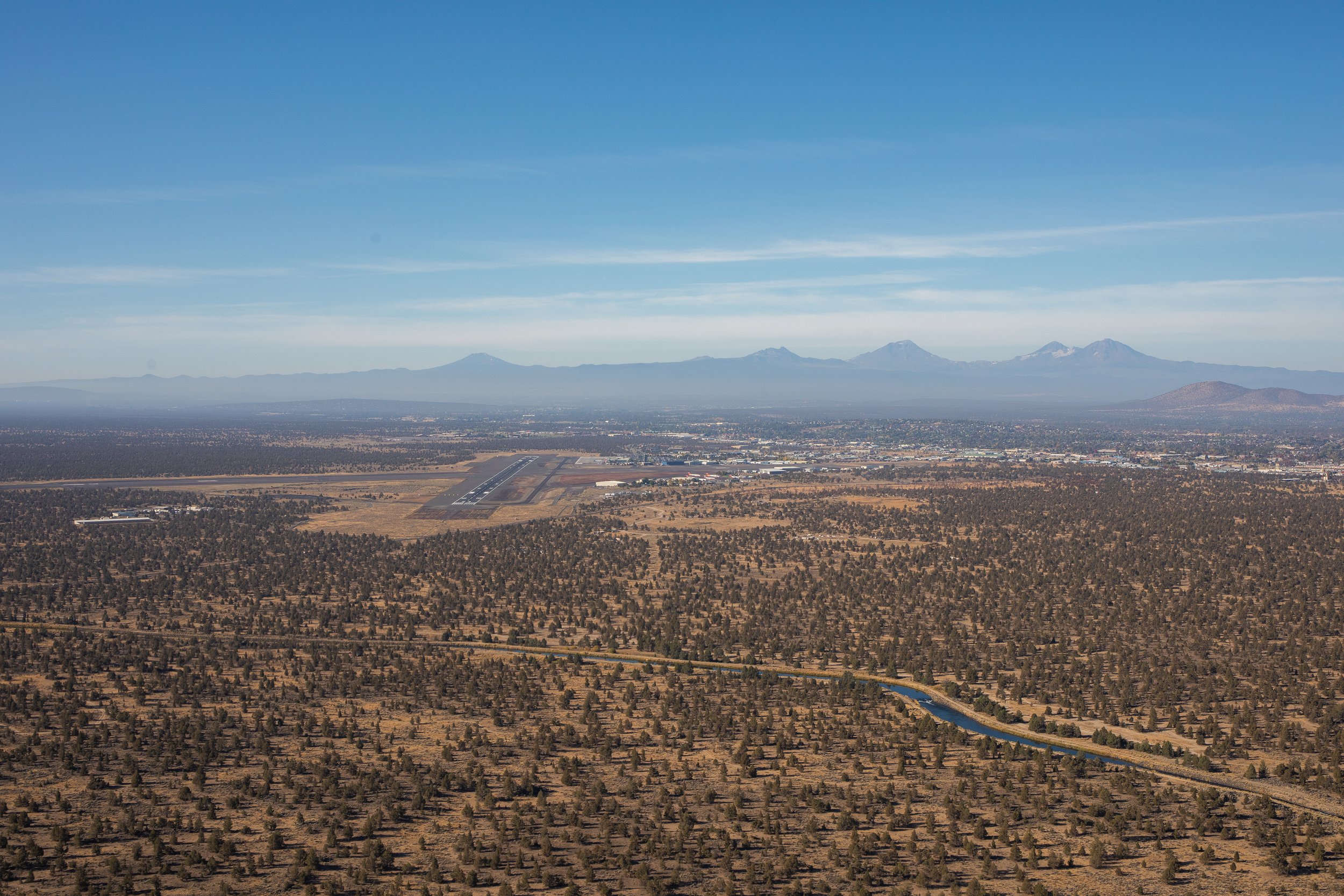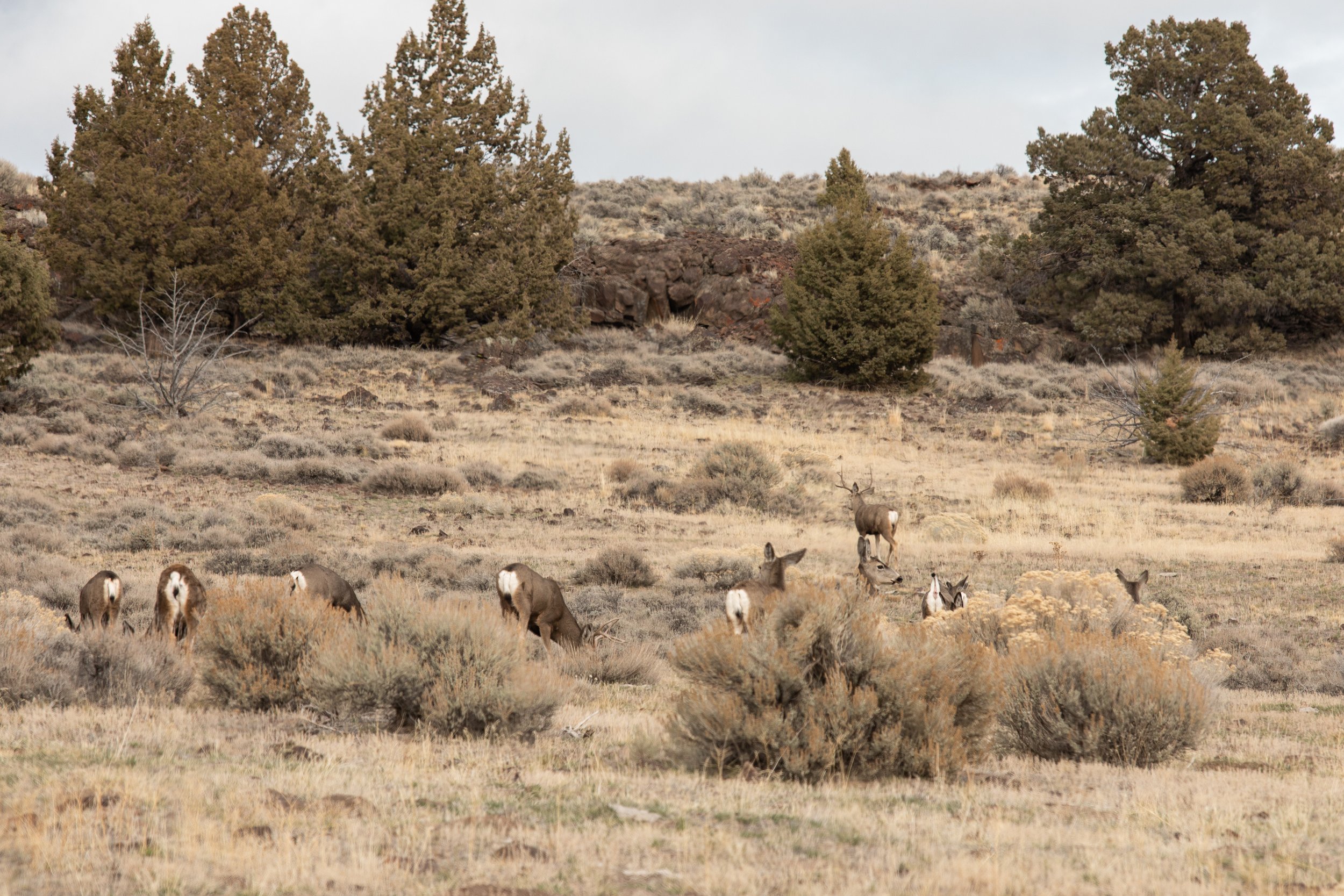A wide-open way of life
Central Oregon’s rural lands offer iconic scenic vistas, sustain complex high desert ecosystems, and enable a thriving regional agricultural economy.
Oregon’s visionary land use planning system preserves rural lands for open space and agriculture. Photo: Ryder Redfield
The next time you're atop a favorite peak or elevated vista, take a moment to consider the panoramic expanse before you.
An abundance of open space and productive agricultural lands distinguishes life in Central Oregon. Mule deer and more depend on undeveloped areas for migration corridors and habitat connectivity, while hard-working farmers and ranchers produce nourishing food for our growing communities.
Photo: Ryder Redfield
Confronting A Rapid Loss of Farmland
Despite the defining nature of our region’s rural lands, Deschutes County has a zeal for rezoning our precious supply of farmland in favor of rampant luxury development.
The County’s rapid conversion of our rural lands threatens to undermine Oregon’s visionary land use planning system that has made Central Oregon the remarkable place it is today.
With several key wins secured in the first half of 2024, LandWatch is preserving critical rural lands and preventing rural gentrification.
Lower Bridge Valley is recognized by Deschutes County as a highly productive agricultural area. Photo: Ryder Redfield
In Deschutes County’s Lower Bridge Valley, the County approved an application to rezone 710 acres of agricultural land for luxury residential development. LandWatch and our partners successfully challenged this rezoning, won at both the Land Use Board of Appeals (LUBA) and the Court of Appeals, and the land remains zoned for exclusive farm use. However, the County’s brazen attempt to rezone this land speaks to its unswerving penchant for developing farmlands and open space.
Dozens of Crooked River Ranch community members voiced their opposition to this proposed development.
Jefferson County recently rezoned 142 acres of agricultural land adjacent to the Crooked River Ranch for residential development. This would have facilitated 71 new residential lots in a high-fire-risk, groundwater-stressed area.
Once again, LandWatch stepped in and successfully challenged this rezoning at LUBA, which the Court of Appeals affirmed in early May after LandWatch successfully defended against the developer’s appeal.
Thornburgh failed to demonstrate there would be “no net loss of fish or wildlife resources” from groundwater withdrawals by the resort.
Nearly two decades after the ill-conceived Thornburgh Resort was first proposed, LandWatch and our partners demonstrated to LUBA that the resort has not proven it can mitigate the impacts of its immense proposed water use on fish and wildlife.
The Confederated Tribes of the Warm Springs, Annunziata Gould, Tom Bishop, and Judge Paul Lipscomb also opposed the resort’s fish and wildlife mitigation plan.
In early May, the Oregon Court of Appeals agreed that the resort has not proven it can mitigate the impacts of its proposed water use, and additionally found that LUBA did not adequately consider the effect of the resort on the Tribes’ treaty-protected rights to healthy fish populations.
LandWatch succeeded in challenging a proposed rezoning of 20 acres of land from agricultural use to industrial use in the scenic corridor protected on Highway 97 between Bend and Redmond.
The hearings officer agreed with LandWatch that the law prevents conversion to industrial use that would mar the iconic vistas and open space here.
In Crook County, LandWatch and neighboring farmers successfully opposed a proposal for commercial use in the middle of the beautiful Lone Pine Valley.
The proposed commercial uses were not incidental and subordinate to farming as the law requires.
Mule deer populations across Central Oregon have declined by 56% since 2004. Photo: Ryder Redfield
Jefferson County recently approved a nonfarm dwelling on 180 acres of agricultural land above Whychus Creek in one of the region's last strongholds for Central Oregon's dwindling mule deer population.
LandWatch appealed that decision to the County’s Planning Commission, which then denied the application, keeping this vital wildlife habitat intact instead of fragmented by residential use.
Upholding Livelihoods, Planning for Growth
One of LandWatch’s key aims is to defend and preserve the livelihoods of farm and ranch families whose way of life is threatened by rapid growth and irresponsible development pressure. We also want our inevitable growth to have a lower impact on wildlife habitat and our climate.
Luckily, one strategy — protecting rural lands from inappropriate development — can achieve both of these aims, but doing so requires vigilance and foresight.
In the last 15 years, Deschutes County has attempted to rezone over 2,800 acres of agricultural land. The county also approved 904 nonfarm dwellings between 1994-2021, almost twice as many as any other county in Oregon. All this is in addition to hundreds more approvals of other nonfarm uses, like commercial events centers and land divisions that fragment our working farms and ranchlands.
Rezoning farmland and approving nonfarm uses make farming harder in Deschutes County by creating conflicts with farm operations and raising land prices through real estate speculation. And with much of this development taking place near Bend's urban growth boundary, possible future urban expansion becomes more difficult and less climate-friendly.
Once developed with sprawl, we cannot create new Complete Communities on lands that might one day become part of the City of Bend.
To help protect against farmland conversion that harms both Central Oregon and the whole state, LandWatch is participating in a Rulemaking Advisory Committee to advise the Land Conservation and Development Commission on needed changes to close loopholes in the current laws regulating farm and forest lands.
Whether through litigation or legislative and policy advocacy, LandWatch is actively working to strengthen the laws that protect working farmland, ranchland, and forests.









